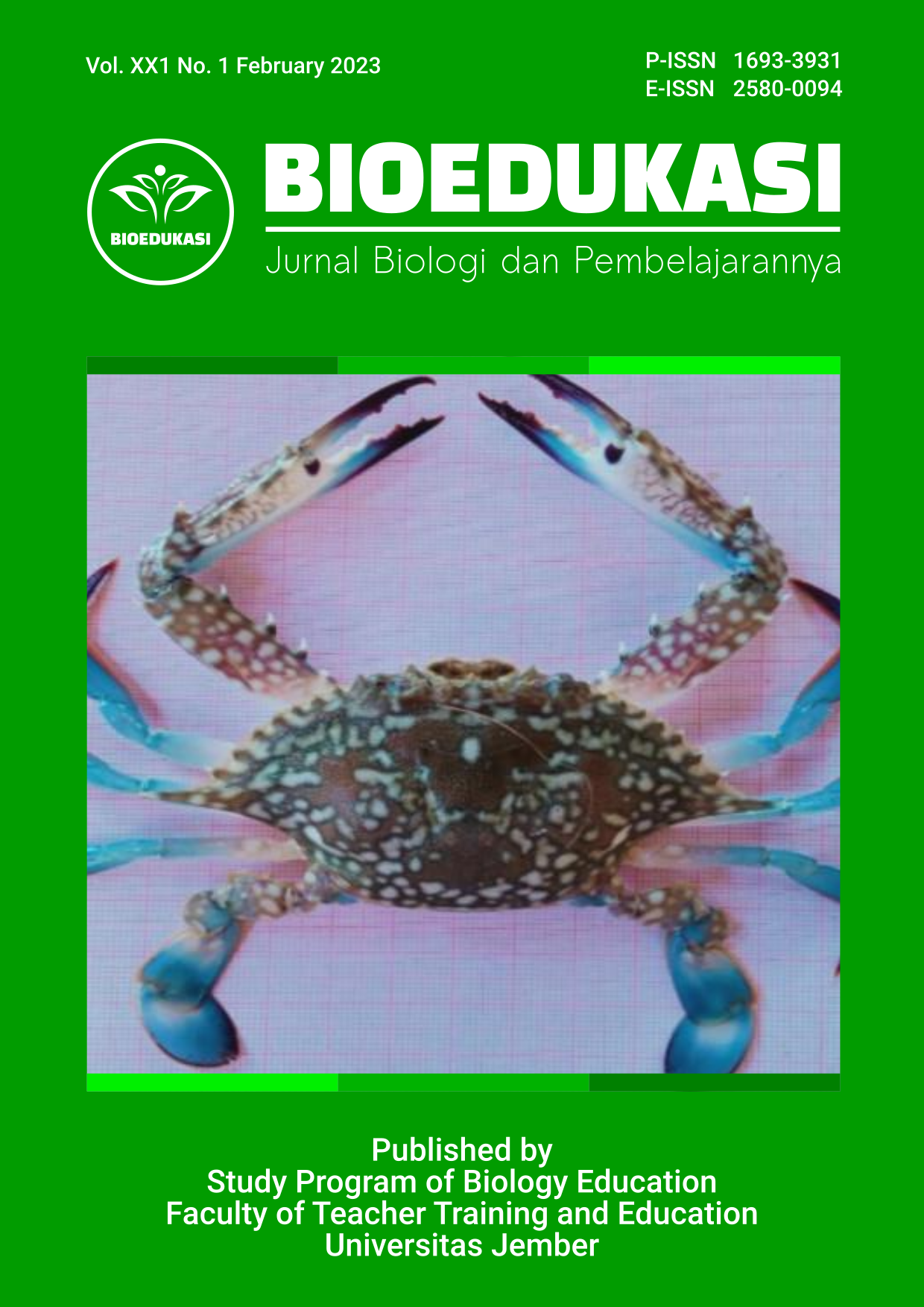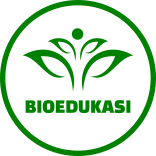RICOSRE FOR THE EMPOWERMENT OF STUDENTS’ SCIENTIFIC LITERACY IN A ISLAMIC BOARDING SCHOOL
DOI:
https://doi.org/10.19184/bioedu.v21i1.32399Keywords:
Problem-Based Learning, RICOSRE, Scientific literacyAbstract
Scientific literacy skills are very important in the learning process and daily life. Scientific literacy does not arise suddenly but requires a facilitator who enables it. One of these is the application of learning models that have the potential to improve scientific literacy. A learning model that has the potential to improve science literacy skills is Problem-Based Learning one of which is RICOSRE. This study aims to investigate the effect of RICOSRE on the science literacy skills of grade X students compared to PBL and conventional models. This study involved 94 students from SMA Progresif Bumi Shalawat Sidoarjo, East Java, Indonesia, and employed a pretest-posttest design with a non-equivalent controls group. The pretest and posttest consisted of 8 essay questions each. ANCOVA and LSD tests to analyze student scores. The results indicated a significant effect of RICOSRE on the students’ scientific literacy skills. The student’s average score on scientific literacy skills increased considerably (45,23%) on RICOSRE and PBL (15.73%) and decreased in conventional learning by 4.57%. RICOSRE can be implemented to empower students' scientific literacy skills. These results indicate that RICOSRE is proven to be more effective in improving students' scientific literacy skills compared to PBL and conventional learning models.
Downloads
References
Basam, F., Rusilowati, A., & Ridlo, S. (2017). Analysis of Science Literacy Learning with Scientific Inquiry Approach in Increasing Science Competence of Students. 6(3), 174–184.
Cavas, P. H., Ozdem, Y., & Cavas, B. (2013). Turkish pre-service elementary science teachers’ scientific literacy level and attitudes toward science. 24(4), 383–401.
Deanna, K., & Richard, W. (2005). Education for Thinking. 00, 318–322.
Deboer, G. E. (2000). Scienti ® c Literacy: Another Look at Its Historical and Contemporary Meanings and Its Relationship to Science Education Reform. 37(6), 582–601.
Dian Dwi, H., Lisdiana, & Sri, S. (2016). PENGARUH PEMBELAJARAN BERBASIS PROYEK BERBANTUAN MODUL DAUR ULANG LIMBAH PADA LITERASI SAINS. Journal of Biology Education, 5(3), 302–309.
Fang, Z. (2005). Scientific Literacy: A Systemic Functional Linguistics. Sci Ed, 89, 335– 347. https://doi.org/10.1002/sce.20050
Holbrook, J., & Rannikmae, M. (2009). The Meaning of Scientific Literacy. International Journal of Environmental & Science Education, 4(3), 275–288.
Jannah, A. M., Suwono, H., & Tenzer, A. (2020). Profile and factors affecting students’ scientific literacy of senior high schools Profile and Factors Affecting Students’ Scientific Literacy of Senior High Schools. 070021(April).
Mahanal, S., & Siti, Z. (2017). MODEL PEMBELAJARAN RICOSRE YANG BERPOTENSI MEMBERDAYAKAN KETERAMPILAN BERPIKIR KREATIF. (2007), 676–685.
Mullis, Ina V S Martin, Michael O Foy, Pierre Arora, A. (2011). TIMSS 2011 International Results in Mathematics. Amsterdam: International Association for the Evaluation of Educational Achievement (IEA).
Norris, S. P., & Phillips, L. M. (2003). How Literacy in Its Fundamental Sense Is Central to Scientific Literacy. Science Education, 87, 224–240. https://doi.org/10.1002/sce.10066
OECD. (2012). PISA 2012 Results: Creative Problem Solving: Students’ Skills in Tackling Real-Life Problems. https://doi.org/http://dx.doi.org/10.1787/9789264208070-en
OECD. (2017a). PISA 2015 Assessment and Analytical Framework.
OECD. (2017b). PISA for Development Assessment and Analytical Framework (Preliminar). Paris: OECD Publishing.
Richard, A. (2012). Learning to Teach (Ninth). New York: McGraw-Hill Education.
Selçuk, G. S., Çal, S., & Erol, M. (2008). The Effects of Problem-Solving Instruction on Physics Achievement, Problem Solving Performance and Strategy Use. Lat. Am. J. Phys. Educ, 2(3), 151–166.
Siarova, Sternadel, & Szőnyi. (2019). Research for CULT Committee – Science and Scientific Literacy as an Educational Challenge. (March).
Suwono, H. (2016). Suwono 2016 44-81-2-PB.pdf (pp. 309–317). pp. 309–317. Malang.
Suwono, H., Salmah, H., & Tenzer, A. (2020). Scientific literacy profile of science and non-science students in senior high schools in Malang Scientific Literacy Profile of Science and Non-Science Students In Senior High Schools in Malang. 070024(April), 1–7.
Turiman, P., Omar, J., Daud, A. M., & Osman, K. (2012). Fostering the 21st Century Skills through Scientific Literacy and Science Process Skills. Procedia - Social and Behavioural Sciences, 59, 110–116. https://doi.org/10.1016/j.sbspro.2012.09.253
Uus, T., Sri, H., & Andrian, R. (2011). Membangun literasi sains peserta didik (U. S. Artyasa, Ed.). Bandung: Humaniora.
Yasemin, Ö., Pınar, Ç., Bülent, Ç., Jale, Ç., & Hamide, E. (2010). An Investigation of Elementary Students’ Scientific Literacy Levels. Journal of Baltic Science Education, 9(1), 6–19.
Zubaidah, S., & Malang, U. N. (2017). Keterampilan abad ke-21: keterampilan yang diajarkan melalui pembelajaran. (December 2016).






